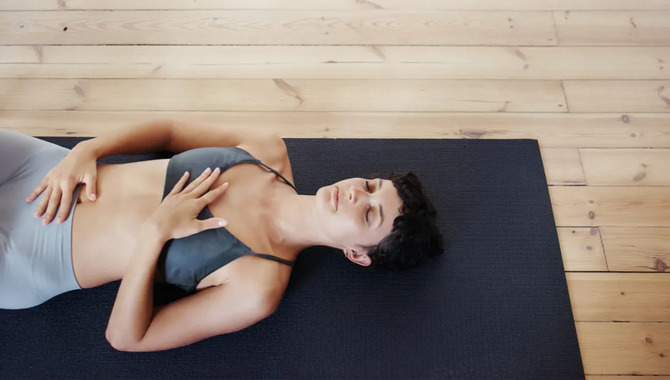Stress is a common problem that everyone experiences at some point in their lives. It can seriously affect your health and well-being, and it’s important to learn how to manage it. It’s also important to remember that there is no one right way to deal with stress.
What works for one person may not work for another, so experimentation is essential to find out what works best for you. Stress is something that everyone deals with to some degree, but too much stress can have negative effects on your health and well-being. Fortunately, there are many ways to reduce your stress levels and improve your overall life. We’ll share 15 secrets to reducing stress and improving your life.
From setting goals and working out regularly to eating a balanced diet and getting enough sleep, these tips will help you feel more in control of your life and cope better with stress. So, whether you’re looking to reduce stress in your work, home, or social life, read on for some valuable advice.

15 Secrets How To Reduce Your Stress And Improve Your Life

Stress is a normal and natural response to difficult situations. Stress is a normal part of life, but too much of it can negatively affect your physical and mental health. However, it’s important to learn how to reduce stress and improve your life. By following these 15 secrets, you’ll be on your way to a more stress-free existence.
1. Try Progressive Relaxation

Stress is a common problem that everyone experiences from time to time. And if left untreated, it can have serious consequences on your mental and physical health. Fortunately, you can use many different techniques to reduce your stress levels and improve your overall well-being. One of the most popular relaxation methods is progressive relaxation.
This technique works for almost everyone and can be practiced easily at home without professional guidance or training. By regularly practicing this method, you will see beneficial changes in how you feel mentally and physically – making it one of the best ways to reduce stress levels.
2. Get A Massage

Massage is one of the oldest forms of therapy, and it has been proven to be very effective in reducing stress levels. Many types of massage can address different areas of the body, so finding the right one is easy. Make an appointment with a masseuse and allow them to help you relax deep down inside. In addition to massages, try meditation or yoga to further reduce your stress level.
3. Take A Nap

Napping has many health benefits, one of which is reducing stress levels. Studies have shown that a good way to reduce stress is by taking a short nap every afternoon. The best time for a nap is in the early afternoon when energy levels are at their lowest.
You don’t have to be tired to nap – you can simply close your eyes and relax. Nap also reduces anxiety and tension, improves mood, memory, and concentration, and reduces the risk of heart disease and stroke. So not only does napping improve relaxation, but it also has major health benefits.
4. Breathe Deeply

Stress is a major issue for many people today. It can negatively affect mental and physical health and even prevent us from achieving our goals. Fortunately, you can do several simple things to reduce stress levels Naturally. One of the most effective methods is deep breathing. By taking deep breaths and focusing on your breath, you help to calm yourself down and clear your mind.
Another way to de-stress is by practicing mindfulness meditation. This practice helps you focus on your present moment without judgment or thoughts of the past or future. You become more in control of your thoughts and emotions this way, leading to overall relaxation. Various other techniques may work well for you – depending on what relaxes you most! So keep exploring until you find something that works best for YOU.
5. Visualize Calm

Relaxation is essential for a healthy mind and body. To achieve this goal, it is important to take time each day to relax and focus on breathing. Picture yourself in the calmest place you can think of, anywhere you want! Write down your goals for the day and review them every evening before bed. Meditation or mindfulness are simple ways to de-stress throughout the day without going through meditation classes or committing hours every day.
6. Laugh It Off

Laughing is one of the best ways to reduce stress. Not only does it make you feel good, but it also releases endorphins which are hormones that make us happy and energetic. Laughter has been linked to health benefits such as reducing heart disease risks, improving mental health, and improving physical well-being. So why not take some time out for yourself every day and laugh?
It will help boost your mental and physical mood, making life much easier! Besides, if you’re someone who hates exercising, then yoga or meditation might be a better option for you- they both have been shown to promote relaxation and calmness. So go ahead – let go with a smile on your face.
7. Escape Into A Book

Reading is one of the best ways to escape into another world. Whether you choose a fiction or non-fiction book, reading can take you on an amazing journey that immerses you in the heart of the story.
Besides enhancing your vocabulary and enriching your education, reading also helps improve mental health by providing relaxation, escapism, and social interaction. In addition, it has been proven to foster a sense of well-being and happiness. So, if escaping another world isn’t enough for you right now, go ahead and pick up a book.
8. Exercise

Exercise has been proven to be one of the best ways to reduce stress. It releases endorphins, hormones that help you feel happier and more relaxed. Plus, by exercising regularly, you build up muscles and bones, making you more physically fit in the long run.
When choosing an exercise routine, there is no right or wrong answer – as long as it interests you and fits into your daily schedule. So go for a walk in your neighborhood or try yoga or Pilates at home. And don’t forget those 10-minute breaks outside – they’re essential for keeping our mental health healthy.
9. Kiss Someone

Kissing someone is one of the simplest yet most delightful things in life. Taking time for yourself daily will help you recharge and reduce stress levels. Connecting with nature – outside or inside – can also be a great way to de-stress. Make sure to spend quality time with your loved ones too. Doing things that make you laugh or relax your mind are all great ways to reduce stress and improve your overall well-being.
10. Hang With A Pet

Pets offer a lot of social support and can relieve stress levels. If you don’t have one, it’s time to consider adopting one. There are many animals in need of homes, and adoption agencies always keep lists of available pets. Get involved in animal rescue or volunteer work to help animals who desperately need a home – even if it’s just for a short while. And finally, make sure you take regular breaks – even if that means going outside your office for 10 minutes.
11. Hug It Out

There’s no doubt that stress can harm our mental and physical health. To reduce stress levels, developing healthy habits such as exercising, eating well, and spending time with friends and family is essential. Connecting with people socially also has great benefits – it reduces loneliness and builds social support systems which can be crucial when times get tough. Taking time for yourself each day will help you recharge your batteries so that you’re ready to face the next challenge head-on.
12. Practice Religion

Religion can be a great way to connect with your inner self and find solace in difficult times. By following a routine, practicing meditation, or engaging in other activities that give you peace of mind, religion can help lessen stress levels and provide mental stability during tough times. Plus, spending time with family and friends is essential for keeping us healthy – they may not always be able to offer comfort, but at the very least, they will make you feel loved.
13. Drink Tea

Drinking tea is a great way to relax your mind and body. Some of the health benefits of tea include reducing stress, improving blood flow, boosting the immune system, and helping you lose weight. Make sure you drink the right type of tea – black, green, or white – for optimal results. Experiment with different flavors to find what appeals to you most. You can add honey, lemon, or ginger for extra flavor and health benefits. Drinking tea has never been so delicious.
14. Try Self-Hypnosis

Hypnosis is a great way to reduce stress and improve your life in several ways. Self-hypnosis can use to relax, de-stress, sleep better, and focus better under pressure. It also has several applications in the workplace – for example, it can help you manage stress levels and stay productive during long hours at work. Many different hypnosis tapes are available today – find one that suits your needs best. You’ll be able to reach deep relaxation quickly and easily with self-hypnosis; all you need is time for yourself each day.
15. Chew Gum

Chew gum is an excellent way to reduce stress levels, improve focus, and feel better overall. Plus, it’s a great way to keep your molars healthy – perfect for people who enjoy chewing on tough textures! Chewing gum can also help you retain information better and boost your mood.
Conclusion
Stress can cause you to feel tense, anxious, and irritable. It can also lead to headaches, impaired concentration and memory problems, and even chronic pain. If you’re feeling stressed out all the time, there are some things you can do to improve your situation. You can try deep breathing exercises or yoga to help relax your body and mind. You could also try cognitive behavioral therapy (CBT), a type of psychological treatment that helps change thought patterns contributing to stress.
Reducing your stress is essential for a healthy mind and body. We have shared 15 secrets that will help you achieve this goal. From practicing yoga to organizing your time better, these tips will help reduce stress and improve your overall life. Start reducing your stress today and feel the difference.
Frequently Asked Questions
1.How Can I Reduce My Stress Level In The Morning?
Ans: There are many ways to reduce stress in the morning and make your day smoother. Some of these tips include:
- incorporating relaxation techniques into your morning routine, such as deep breathing and stretching.
- Start the day with a healthy breakfast that sets your energy levels.
- Make sure to find time for yourself each morning, even if it’s just 15 minutes of reading or listening to music.
- spend time in nature, if possible. Even a few minutes of being outdoors can help reduce stress levels.
2.What Are Some Ways To Relax And De-Stress At Night?
Ans: There are many ways to relax and de-stress at night. Some of the most popular include
- Take a warm bath or shower to relieve muscle tension and clear your mind.
- Exercising releases endorphins, hormones that help reduce stress levels.
- Practicing yoga or meditation to clear your thoughts and calm your mind.
- Listening to calming music or practicing deep breathing exercises before bed to ease into a peaceful sleep.
- Reading a book or magazine before bed to escape into another world for a few hours.
3.What Are Some Of The Best Methods For Reducing Anxiety And Depression?
Ans: There are many ways to reduce anxiety and depression, but some of the most common and effective methods include exercise, meditation, diet, sleep, and nature. Regular exercise has been shown to help reduce tension levels, increase endorphins, improve mood, and decrease stress.
In addition, meditation has been proven to be an excellent way to reduce anxiety and stress levels. Mindfulness meditation is a form of meditation that helps practitioners focus on their breath and other inner thoughts without judgment. Yoga has been shown to be beneficial for both mental and physical health.
4.Can Meditation Help Reduce Stress Levels?
Ans: Meditation can help reduce stress levels. Many studies have linked regular meditation to reduced levels of stress, anxiety, and depression. Meditation can help you become more aware of your thoughts and feelings, allowing you to manage them better. Research suggests that mindfulness meditation may also improve physical health, such as heart rate and blood pressure.
5.Does Exercise Help Relieve Stress?
Ans: Yes, exercise can help relieve stress levels positively. Regular exercise can improve your mood, boost energy levels, and help you sleep better. In addition, it can also help to distract your mind from worrying and negative thoughts. Plus, making time for physical activity helps you to connect with nature and healthily nurture your body.

Leave a Reply